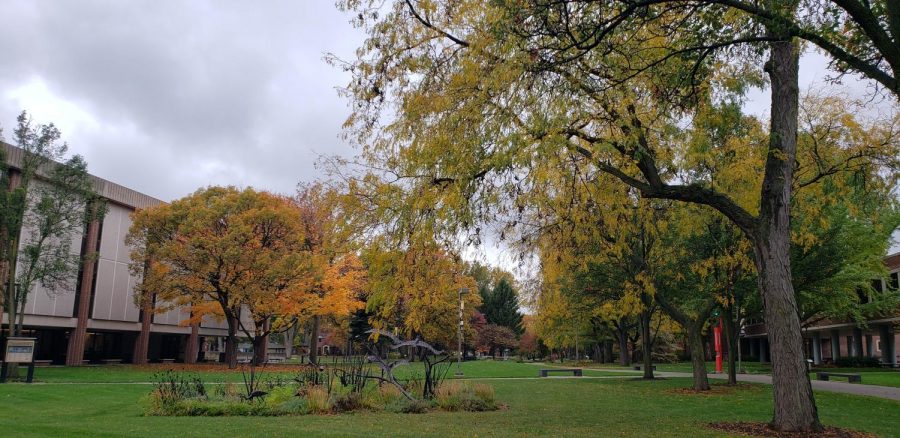University tried to provide students with new live learning opportunities through virtual internships
While many people look forward to fall colors, they signal a seasonal change that some students worry may bring more isolation that complicates seasonal anxiety and depression that already poses problems for a significant number of students.
Students who cannot find internships or summer jobs because COVID-19 has led to corporate hiring freezes may get some help from the university starting next semester.
The Academic Affairs department is working to expand virtual internships, project-based learning and micro-internships that will enable students to work online with companies around the world to get practical career experience that can burnish resumes.
“The (university’s) strategic plan aims to build on the foundations we already have, increasing opportunities for students through additional experiential education offerings, including things such as project-based learning and micro-credentials – but now also with a special eye to virtual experiences in this time of COVID restrictions,” said Becky Stankowski, associate vice chancellor of Academic Affairs.
Remote, online and virtual opportunities have been around for a while. Organizations such as CAPA Global Education Network and UC Davis’ Global Learning Hub have provided virtual study abroad and internship opportunities for several years. But the onset of COVID-19 has led those programs to expand. Now PNW is racing to provide similar opportunities for students here.
“This came home to PNW this past summer when I was approached about virtual internships by the general counsel for Relief International,” said Stankowski. “She is from Northwest Indiana and knows the work ethic of our students and thought they would be a good fit for the organization. This activity will give students in political science, business, and communication the opportunity to work with an international non-profit agency.”
Relief International is a humanitarian and development organization, which operates in areas that experience recurring man-made or natural crises that obstruct human development.
The group’s website reports that the organization provides many hands-on learning experiences – program research and development, operational support, fundraising, public relations, graphics, web design, information technology, administration, accounting, human resources and logistics – and other areas where students are struggling to compete for a dwindling number of internships and jobs.
Stankowski said the Relief International virtual internship program with PNW is still developing. The goal is to create and frame opportunities that could serve as a model for other organizations and settings.
Several opportunities will be available in the spring semester. One, “Introduction to Social Work,” is a partnership with United Way Porter County. A second, “Macro Practice: Human Service Organizations And The Community,” will be an upper-division social work course that will develop an eService learning project or virtual conference for the community.
Academic Affairs hopes the virtual experiences can help students fulfill the experiential component of their education, which has traditionally involved internships, undergraduate research, volunteerism and cultural immersion or study abroad.
Stankowski said that the university is hoping that the virtual experiences are rewarding enough that PNW will permanently add them to the mix, along with study abroad programs. She likened the program to the experience of churches that were forced to stream services because COVID-19 made traditional attendance impossible.
Many are continuing to stream even though they are now open – which will be a continuing benefit for people who, for whatever reason, can’t attend,” said Stankowski. “Without the pandemic, they would not have invested the time nor the resources.”
Students should contact a professor or the department chair in their major to inquire about the experiential learning opportunities in their programs, both the traditional in-person types as well as the virtual ones.


